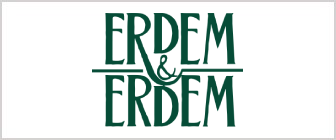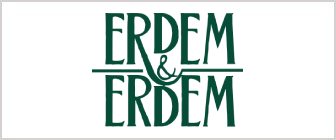As a general rule, under Article 80 of the Repetitive Income Tax Law No. 193 ("ITL"), capital gains derived from the disposal of securities, except for exemptions, are subject to income tax as capital appreciation gains.
However, under the mentioned article, it is stipulated that capital gains derived from the disposal of shares acquired gratuitously or held for more than two years by full taxpayer corporations shall not be subject to income tax as capital appreciation gains. The fourth paragraph of the relevant article further states that gains derived from the disposal of partnership rights or shares shall be subject to income tax as capital appreciation gains.
Within the scope of this article, general principles and explanations regarding the "acquisition date" of shares about the two-year holding requirement summarized above will be discussed.
Legal and Communiqué Regulations
As summarized above, under Article 80 of the Repetitive ITL:
- Capital gains derived from the disposal of shares acquired gratuitously or held for more than two years by full taxpayer corporations shall not be subject to income tax as capital appreciation gains.
- Gains derived from the disposal of partnership rights or shares shall be subject to income tax as capital appreciation gains.
In this context, the issuance and holding period of shares of joint-stock companies are significant for taxation purposes. Accordingly, under the exemption provision, if shares of a full taxpayer joint-stock company are held for at least two full years, the capital appreciation gain arising from the sale of these shares is exempt from income tax.
Therefore, determining (i) the actual acquisition date of the shares by individuals and (ii) the date assumed as the acquisition date under the legislation is crucial.
Explanations regarding the determination of the acquisition date are provided under Income Tax General Communiqué No. 232 ("ITL Communiqué"). According to the provisions of the said Communiqué:
- Generally, the date on which the right of disposal over the share certificate is acquired should be considered the acquisition date.
- In the taxation of gains derived from the disposal of shares, in cases where shares are acquired due to the addition of capital and profit reserves to the capital, the acquisition date of the previously owned shares shall be taken as the acquisition date of the newly acquired shares.
The same Communiqué states that temporary share certificates shall be subject to the provisions concerning the taxation of capital gains derived from the disposal of shares.
Additionally, section 2.4.1.4 of Income Tax General Communiqué No. 257, titled "Acquisition Date and Values of Shares Acquired Due to Capital Increases," states that for shares acquired due to the addition of capital and profit reserves to the capital, the acquisition date of the previously owned shares shall be taken as the acquisition date.
Rulings
Summaries of some tax rulings identified in the Revenue Administration's ruling database regarding the subject matter are as follows:
Shares Not Issued or Not Converted into Temporary Share Certificates:
In rulings[1] issued by the Revenue Administration regarding the commencement date of the two-year holding period, it is stated that the two-year holding period should be calculated based on the date the shares were issued. Accordingly, if shares are in the form of uncertificated Shares, the two-year holding period required for the income tax exemption does not begin. The basis for this opinion of the Revenue Administration is the phrase "share certificates" in Article 80/1 of the Repetitive ITL and the expression "the date on which the right of disposal over the share certificate is acquired" in the ITL Communiqué.
Failure to Record the Issuance of Temporary Share Certificates in the Decision Book:
In a ruling issued in 2017[2] , the Revenue Administration accepted that, provided the company documents it, the initial acquisition date of temporary share certificates issued under a decision of the company’s board of directors but recorded in the decision book in a later year should be taken as the date of issuance of the temporary share certificates.
Conversion of Temporary Share Certificates into Share Certificates:
According to a ruling issued in 2012[3] , the Revenue Administration determined that for company partners who converted their temporary share certificates into share certificates, the acquisition date should be taken as the date the temporary share certificates were issued.
As seen from the summarized private rulings, the date of issuance of share certificates or temporary share certificates and the date of the board of directors' resolution regarding their issuance are significant for determining the acquisition date.
Changes in Bookkeeping Obligations
As is known, under the Communiqué on Keeping Non-Accounting Business Books in Electronic Format, published in the Official Gazette No. 32813 dated February 4, 2025, trade companies are required to keep their share ledger, board of directors' decision book, managers' decision book, and general assembly meeting and negotiation book ("Books") electronically. The Communiqué entered into force on July 1, 2025.
According to the relevant Communiqué:
- Companies registered in the trade registry as of January 1, 2026, and
- Banks, financial leasing companies, factoring companies, consumer finance and card services companies, asset management companies, insurance companies, holding companies incorporated as joint-stock companies, currency exchange offices, companies engaged in general warehousing, agricultural product licensed warehousing companies, product specialized exchange companies, independent auditing firms, inspection companies, technology development zone management companies, companies subject to the Capital Markets Law No. 2499 dated July 28, 1981, and companies establishing and operating free zones
are required to keep their Books electronically.
Companies other than those mentioned above may voluntarily keep their Books electronically. However, in such a case, all Books must be kept electronically.
Therefore, it is evident that these new regulations on bookkeeping will also be significant for determining the acquisition date of shares and the dates of the board of directors' resolutions regarding share issuance.
Conclusion
Under Article 80 of the Repetitive ITL, it is regulated that capital gains derived from the disposal of shares acquired gratuitously or held for more than two years by full taxpayer corporations shall not be subject to income tax as capital appreciation gains.
Thus, determining (i) the actual acquisition date of shares by individuals and (ii) the date assumed as the acquisition date under the legislation is crucial.
The approach in the law and related communiqués suggests that the acquisition date should be determined as the date on which the right of disposal over the share certificate is acquired. In this context, the issuance date of share certificates/temporary share certificates and the relevant board of directors' resolutions are significant for tax purposes.
Accordingly, the new regulations introduced by the Communiqué published in the Official Gazette No. 32813 dated February 4, 2025, regarding the electronic keeping of Books should also be taken into consideration in relation to share issuance decisions.


